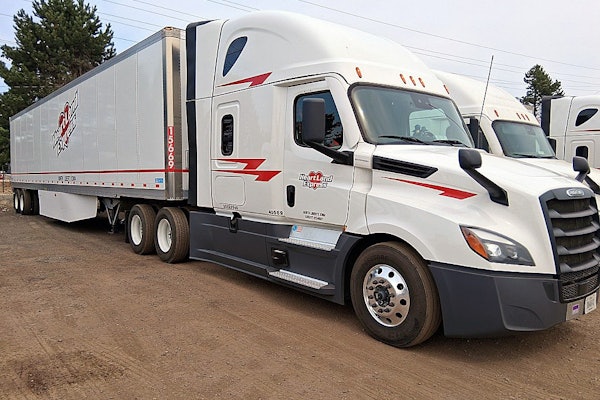The Trucking Association of New York (TANY), along with Assemblywoman Donna Lupardo and other state transportation stakeholders, called on legislators to reconsider implementation of California Air Resources Board (CARB) Advanced Clean Truck (ACT) regulations set to take effect in the state just more than two months from now.
TANY President Kendra Hems called for an "immediate delay."
New York joins Oregon in attempting to flex rules that were supposed to launch in January requiring a percentage of new trucks sold in their states to be zero-emission vehicles.
Oregon's Department of Environmental Quality next month will propose temporary rules during its Environmental Quality Commission meeting to adopt amendments California Air Resources Board (CARB) is expected to make to its Advanced Clean Truck regulations – changes that will likely include an increase to the deficit makeup period from one model year to three model years, compliance based on reported sales of delivered vehicles and more.
Heiland said he's been trying to make his customers aware of CARB and ACT for more than two years, "but it's still a shock to many of them" less than 80 days from implementation.
Roughly 4,000 Class 8 trucks are registered annually in New York, and ACT regulations would require 280 (7% of sales) of them to be zero emissions in 2025 to support total annual retail sales of diesel units.
"Less than 40 have been registered to-date," noted Hems, adding that New York has not installed a single public heavy duty truck charger since the ACT was approved in 2021. "We are no closer today than we were four years ago."
To date, 11 states, including California, New York and Oregon, have pledged to adopt CARB's ACT rule, but the 2025 implementation date is not universal. California kicked off this year. Colorado, Maryland, New Mexico and Rhode Island earmarked 2027, and Vermont 2026.
"Business is driven by demand," said Tom Heiland, president of Utica Mack, an upstate New York Mack Trucks dealer. "Today, we're being told what we must sell and in what ratio."
The New York group is asking state leaders to reconsider the timeline toward electrification on the grounds that the "current, rushed timeline" could handicap truck dealers and motor carriers across the state. Lupardo said she first became aware of potential issues with the ACT rule when Burr Truck, a local Volvo certified electric truck dealer, brought them to her attention.
"I question whether our company will survive," said Chuck Burr, president and owner of Burr Truck, the oldest Volvo dealer in the U.S., and a Volvo Certified EV dealership.
"We have diesel orders ready to place in 2025," added Burr Truck General Manager Mark Stone, "and we will not be able to if legislation does not change."
Under ACT, for every eight diesel units sold in New York, heavy truck dealers in the state would have to sell one BEV first, and Stone noted that "the process of selling a battery electric vehicle can take up to 18 months" with supply chain challenges, infrastructure needs and applying for incentives and grants.
Rick Wadhams, president of 500-plus truck Wadhams Enterprises, said his family-owned, Phelps, N.Y.-based transportation company replaces roughly 50 rigs annually, but "this coming year, we have nothing ordered."
Given order cycles and industry backlogs, Wadhams is likely already out of the 2025 replacement cycle entirely. Wadhams operates in truckload, LTL, bulk, petrochem and milk and food-grade tank at weights that routinely gross over 80,000 pounds.
"It's going to be very tough for us to operate" if the ACT is implemented in New York, he said. "The EV is not fit for at least two of our divisions due to weight restrictions."
Wadhams also has a problem with EV heavy truck range that is routinely less than 200 miles and a cost of acquisition he called "crazy."
"You can buy about three combustion engines for the price of one EV truck," he said.
Hems is formally asking for a two-year pause until at least 2027 or until New York can come up with an infrastructure plan. However, a delay for ACT in New York, as far as Wadhams is concerned, is the least lawmakers could do. His preference is "just kill it completely."
"The Clean Truck rule is extremely well intentioned... but even (California) can't keep up with this," said Clean Communities of Central New York Executive Director Barry Carr, adding "[BEVs] will be a number of years to be commercially viable for everyone."













